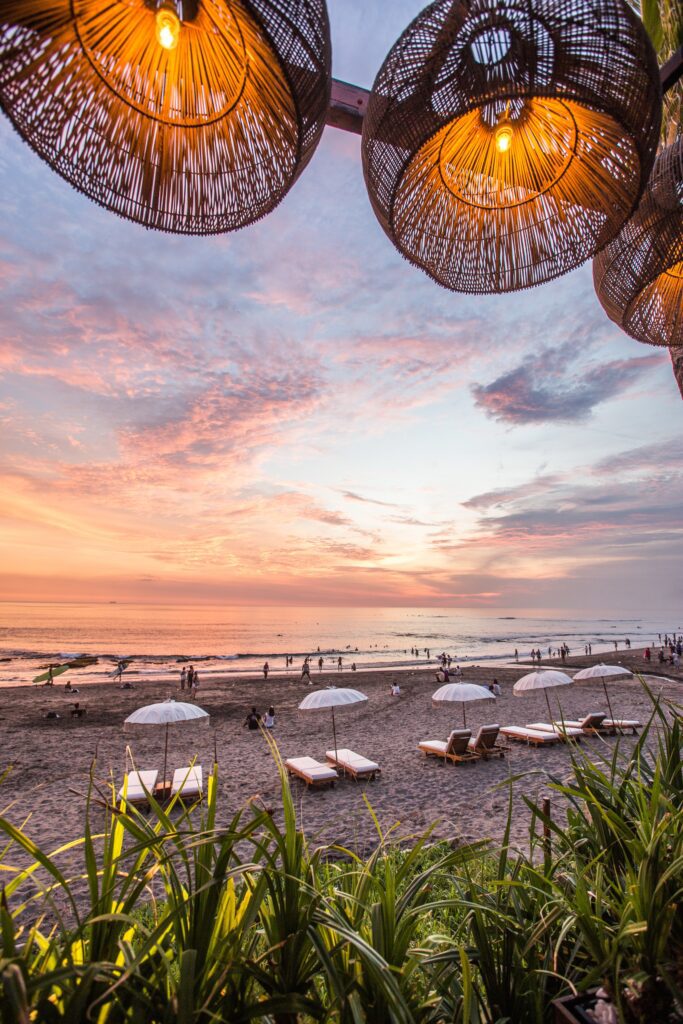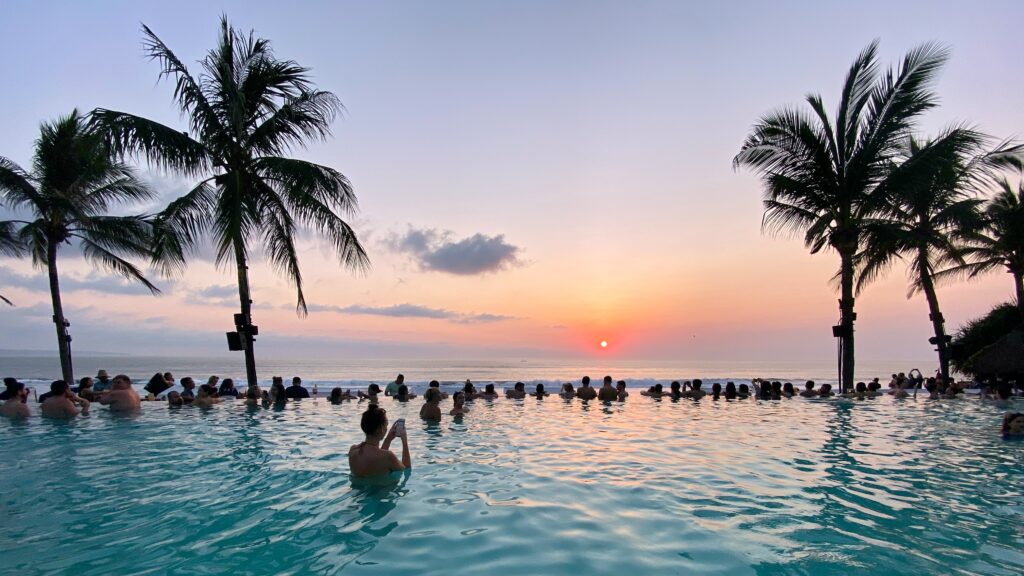
Buying a house in Bali is an absolute dream for many travelers who have fallen in love with the island on vacation. The island is home to some of the most beautiful beaches in the world, a thriving nightlife scene, and a vibrant culture. And, of course, who wouldn’t want to own a piece of paradise? But before you start scouring listings, there are a few things you need to know about buying a house in Bali. This guide will help you navigate the process and make sure that you end up with the perfect home for your needs. Bon voyage!
What Indonesian Law Says About Foreign Nationals Buying a House in Bali

The first thing to know about buying property in Bali as a foreign buyer is that only Indonesian citizens (actual people, not companies) can own land in Indonesia with a “freehold title,” meaning that they own the land free and clear for an indefinite period of time. This freehold destination is called hak milik. If you aren’t an Indonesian citizen and aren’t planning to become one anytime soon, there are a few ways you can acquire property in Bali.
Until recently, one of the most common ways that foreigners entered the real estate market in Bali was by using a “local nominee” to purchase their property for them. With this method, the land or villa you wish to own would be bought in the name of an Indonesian citizen, and then that person would create a separate side agreement with you granting you exclusive use of the land and home.
If you’re thinking that this puts a lot of control in the hands of someone else, you are correct. The nominee process skirts Indonesian property laws and are not enforceable, leaving you completely unprotected in the event that the true owner of the property decides to void your agreement and take possession of “your” land and home.
A safer way that foreign investors can ensure they have legal rights to the property they want to buy is by purchasing their land or property through Hak Pakai. Hak Pakai is when you buy freehold land or a property through a foreign-owned company called a PT PMA. With this foreign investment company, you receive a certificate of property ownership, a title for the property, and the right of use of the property for 80 years. It starts as a 30-year lease contract with the ability to renew twice for 25-year contracts (totaling 80 years). You are essentially buying the right to use and build on land in Bali for up to 80 years. This is considered a leasehold property, and it has the same rights as the freehold property discussed above except that it expires after 80 years.
There are some restrictions on what properties qualify for Hak Pakai – the maximum land size is 2,000 square meters, and the minimum value for the land is 10 billion IDR (about $700,000 USD). That obviously rules out a lot of buyers from Western countries looking for a relatively cheap holiday investment, but it is the longest-lasting way to have your own villa in Bali.
The last, and most approachable, way for foreigners interested in buying a house in Bali is to use the leasehold property option, or Hak Sewa. With leasehold land, a foreigner leases either land or an existing home for a period of time. In this scenario, the title and ownership always stays with an Indonesian citizen. With this option, you aren’t actually buying property in Bali, but it does allow you long-term use of land, even to build on it.
In the Hak Sewa option, even if you build a property on leasehold land, you do not own the property, and when your lease expires (up to 80 years), the Indonesian owner retains the rights to the home you built.
How Hard is it to Become a Citizen of Indonesia?
At this point, you may be ready to start exploring Indonesian citizenship in order to protect your property rights and enjoy your new villa indefinitely. Let me caution you, it is not fast or easy. To be a land owner on the Indonesian island of Bali, you have to become a citizen through either marriage or naturalization. Naturalization requires a 5 or 10 year stay in Indonesia. Either option requires you to relinquish your current citizenship – dual citizenship is not allowed for adults. Achieving citizenship is really not an option that many foreigners would wish to pursue solely for the ability to own a beautiful villa in Bali.
Location, Location, Location – Where to Buy a House in Bali

Do you want to be in the heart of the action or do you prefer a more relaxed setting further away from the hustle and bustle?
When deciding on the perfect location for your second home, there are lots of considerations to make. Do you yearn for a Bali property surrounded by stunning beaches and beach clubs? Or maybe you have your sights set on somewhere quieter and more rural in setting? Regardless of which option is preferred, it is important to consider the location carefully and weigh up all options before settling on one. In Bali, you have a few major areas to consider.
Canggu and Berawa
Canggu, located in the southwest of Bali, is a relatively new area for visitors with popular beaches like Canggu Beach, Echo Beach, and Nelayan Beach. Canggu offers a good mix of relaxation, water sports, and nightlife, and is suitable for families, couples, and digital nomads alike. Property owners can expect to get rental income of $250-$500/night for a stunning 2-bedroom villa with a private pool. The majority of properties in Canggu are surrounded by rice fields and are not beachfront properties, but many have lovely views.
Seminyak
Located just south of Canggu, Seminyak is known for gorgeous hotels and villas, with the requisite upscale restaurants to boot. The cost of living here will be a bit higher than in a more up-and-coming area like Canggu, but investors will benefit from the most well-developed of Bali’s property markets and a town with a reputation for exquisite sunsets and Bali’s hippest beaches. Villa rental prices are similar to Canggu, meaning that it may not have as much return on investment as looking in a less developed area.
Ubud
The vibe in Ubud is all about wellness, balance, culture, and art. Located in the interior in the center of Bali, Ubud offers a beautiful green area close to the north of Bali, where visitors can explore temples and nature. It is known as a world’s best destination for spiritual practice, and property owners here will benefit from a thriving community that runs spiritual workshops, wellness retreats, and does it all while maintaining a strong sense of Balinese culture and history.
North Bali
Long-term expats will tell you to avoid the cities in the south and experience real Bali, up north. If you’re working with a limited budget, this is definitely your smartest move, as you will be competing with fewer tourists and your building costs and average price to purchase will be lower. However, the less populated northern areas are also in less demand by renters, meaning that the north is a better bet for people wanting to use their home in Bali to live in rather than as a rental investment.
Size Matters – Practical Considerations when Buying a House in Bali
When deciding on your new home, square footage should be high on your list of considerations. Whether you are looking for a single-story cottage or researching multi-level luxury villas, square meter allocated to each space is an important factor. It’s worth doing your due diligence when determining how many square metres you need in each room and how the overall square footage might be used to best advantage. Taking into account practical and aesthetic considerations will ensure you make a decision that is right for you. Do not be fooled by large square metre homes that are poorly laid out – your research will help determine if it is the best option for you and your family.
Budgeting for Your Bali Home

Purchasing a property in Bali is an exciting adventure that foreign nationals should approach with enthusiasm and caution. As with all purchases of real estate, it’s important to take into account all of the costs associated with the transaction, including potential stamp duty, legal fees and agent commissions. A great starting point is to research and consult with reliable local real estate agents who will be able to explain the process in detail. You should understand all local laws governing the purchase of land title before making any decisions and you should also find out if foreign nationals are allowed to own property in Bali and any additional fees involved. With proper planning and a clear understanding of all costs associated, foreign buyers are sure to have an enjoyable and successful experience purchasing their Bali home.
The cost of your home will depend significantly on location, size, and whether you are buying or building. A Brother Abroad has a great breakdown on property prices across Bali. One thing to note is that prices are negotiable in Bali, and you should never accept the asking price of a property. Negotiating is expected here, perhaps more so than in your home country.
Can you get a loan to buy a house in Bali? Most expats who purchase second homes outside the US leverage the money they have in the US in order to get a private loan. We did this when buying our home in Mexico, and we would do the same elsewhere. There are several ways to do this. Many banks offer a personal line of credit, backed by the collateral of you keeping your money at the bank. Basically, you agree to keep a certain amount of money in a bank account or invested with the bank in some way, and they will give you a loan which you can use to purchase your house in Bali.
Another way to do it is if you have investments in the stock market. This was what we did to buy our house in Mexico. We have our investment accounts in Schwab, and they offer something called a Pledged Asset Line. They loan you money at a percentage of the cash and stocks that you have in an account with them. Some stocks are worth more than others (the max is 70% of the value of the stock), and some are worth nothing, depending on how risky Schwab deems the investment to be. They loan 90% on cash kept with them. So, you can put both cash and stocks in an account with Schwab and take out a flexible loan – you can pay it off whenever you want, and draw more money as needed up to your maximum allowed. Keep in mind that with personal lines of credit like these, the interest rates typically change month by month, and your payments will vary accordingly.
Additionally, if you are pledging investments like stocks as your collateral, if the value of the stocks go down, your ability to borrow money also goes down. Think of it this way: if your stock is worth $100 and you can borrow 70% of that, you can borrow $70 on one share of that stock. But if the price drops to $90, now you can only borrow $63 on that same share. If you have already borrowed money and the value of your collateral drops, you may get a “margin call,” where you have to put more money into the account as collateral or sell some of your stock and keep the cash in the account to prevent the bank from requiring you to repay the loan in full, immediately. It’s always a good idea to borrow a lot less than you are technically allowed to, to prevent this kind of thing from happening.
Another type of loan available to US homeowners is a home equity line of credit. If you have equity in your home, you may be able to borrow against that for the purchase of real estate in Bali. It’s a similar concept to a pledged asset line…it’s just that the asset in this case is your house.
Additionally, of course, you can always save up and pay cash, but our family’s philosophy is that our money works harder for us by being invested. We believe that we can make more returns in the stock market than we will spend in interest on a loan, so we go that route rather than saving up and paying cash.
Assemble your Team

When buying a house in Bali, one of your first steps should be to connect with trusted real estate and legal advisors in the country. Though you may think you can navigate the process alone, you really need a local representative who can provide you with the professional advice necessary to get the transaction done in a safe way that protects your investment and ensures that you are getting a great place for the right market price.
When buying a villa in Bali, you will need a legal team, who will help you with research and draft your contract. Your lawyer will also be reviewing the legal documents of the home or land in question and giving you legal advice on the right way to structure the sale to ensure that everything is in line with Indonesian regulations. When choosing a lawyer, look for one who has experience working with international clients and who can provide referrals of satisfied clients.
You will also need to work with a notary in the region where you are buying your property. The notary will preside over the signing of the contracts and file all necessary paperwork with the local governments to record the property transfer.
How to Stay in Bali Long Term

You may decide that citizenship is not right for you, but you still want to be able to enjoy one of the beautiful Bali villas without having to come and go frequently. US citizens can get a visa on arrival for 30 days with the ability to extend it one time for an additional 30 days. Without doing much work at all, Americans can stay in Bali for 2 months before needing to leave.
There is also a digital nomad visa (now called a second home visa), allowing foreigners to work remotely (all their work must be conducted online) for up to six months without paying taxes, by using an existing B211A visa. There are talks ongoing about Indonesian legislation to create a 5-year digital nomad visa, but as of early 2023, this isn’t in place yet. Visitors wanting to establish a home base in Bali and take advantage of the second home visa must provide proof of funds of $140,000 USD in order to qualify. The second home visa doesn’t seem to be any better than the B211A “visit visa,” which allows visitors an initial 60-day stay with the ability to extend it twice for 60 days each, totaling 180 days. The catch is that the B211A visa holders should technically pay tax on any money they earn while in Indonesia, even money earned from foreign clients and paid into foreign bank accounts. If you want to fully above board on the legal aspects of income tax, digital nomads will want to explore the second home visa.
Worldschooling in Bali
Homeschooling is legal in Indonesia, which is a big reason why Indonesia is a popular destination for worldschooling families. If you’re looking to stay longer-term and want to enroll your kids in a school, there are several highly-rated international schools on Bali. Families will have an easy time finding a curriculum and program that meets their needs, though demand for space is at a premium and you may not get a spot right away.
Happy House Hunting
Buying a house in Bali is a dream for many, and it’s easy to see why. The stunning beaches, gorgeous Indian Ocean, low cost of living, and easy access to other parts of Asia make it a favorite spot for vacationers and expats alike. With some thoughtful planning, the right professional team, and some patience, you can find a piece of land or a modern villa to call your own.







